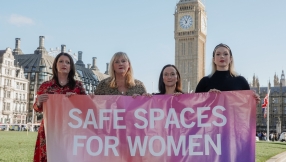China says sanctions will not help Iran dispute
The comments came as Chinese Foreign Minister Yang Jiechi went to Tehran for talks on the dispute, and while a senior U.S. Treasury official was in Beijing to discuss financial penalties on Iran.
"We urge Iran to respond positively to international calls and adopt a flexible stance. We hope that through dialogue and consultation we can promote progress towards resolution," ministry spokesman Liu Jianchao told a regular news conference.
"We believe that sanctions, especially unilateral sanctions, are of no help."
Washington and its allies accuse Iran of seeking to develop an atomic weapon but Tehran says its nuclear programme is purely for the civilian purpose of generating electricity.
Liu would not discuss details of Yang's visit and his words echoed calls for compromise that China has regularly offered.
But his comments underscored how, even as Western powers look to tighten economic pressure on Tehran, China hopes for a negotiated settlement of the nuclear dispute.
Britain, France, Germany, the United States, Russia and China are expected to meet on November 19 to assess reports on Iran from European Union foreign policy chief Javier Solana and International Atomic Energy Agency head Mohamed ElBaradei.
The standoff between Iran and the West poses tough choices for Beijing, wary of sanctions and looking to Iran for more oil yet also reluctant to open rifts with the United States.
British Prime Minister Gordon Brown said on Monday he would push to curb energy and financial investment in Iran unless Tehran resolves nuclear concerns.
Washington has imposed a range of unilateral sanctions on Tehran. U.S. Treasury Under Secretary for Terrorism and Financial Intelligence Stuart Levey has been visiting China, whose companies have previously been targeted by Washington for selling arms and sensitive technology to Iran.
With a permanent seat on the U.N. Security Council, China holds the power to pass or veto possible new sanctions on Iran.
(Reporting by Chen Aizhu and Chris Buckley, editing by John Chalmers)













